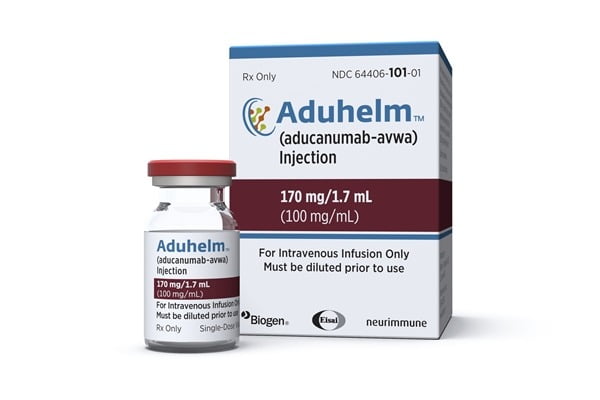The U.S. Health and Human Services (HHS) Office of Inspector General said Wednesday that it would investigate the U.S. Food and Drug Administration’s process in approving Aduhelm (ingredient: aducanumab), Biogen’s Alzheimer’s disease treatment.
The FDA recently approved Aduhelm with an accelerated approval pathway, the agency's regulatory mechanism faced with conflicting efficacy data.

Many saw the approval as a step forward in treating Alzheimer’s disease. Still, Aduhelm’s price and FDA’s approval of it despite its advisors’ oppositions have raised controversy and sparked the federal investigation.
FDA's Acting Commissioner, Janet Woodcock, asked the HHS’s inspector general on July 9 to examine contacts between FDA staff and Biogen representatives during the process for approval.
“As you know, there has been significant attention and controversy surrounding the process of review of Biogen’s biologics license application (BLA) for Aduhelm for the treatment of Alzheimer’s disease,” Woodcock noticed in the statement. “I write to request an independent review and assessment of interactions between representatives of Biogen and the FDA during the process leading to the decision to approve the BLA to determine whether any of those interactions were inconsistent with FDA policies and procedures.”
The accelerated approval pathway allows the FDA to authorize drugs for severe conditions and fill an unmet medical need based on a marker that is believed to be beneficial.
The FDA's approval of Aduhelm raised concerns due to alleged scientific disputes within its organization, including the advisory committee's vote against approval, the alleged inappropriate close tie between the FDA and the industry, and the use of an accelerated approval pathway.
In response to the brewing concerns, HHS decided to take a comprehensive review of how the FDA implements the accelerated approval pathway.
"This will include reviewing interactions between the FDA and outside parties as well as other aspects of the process, such as deciding on this pathway and scientific disputes," HHS inspector general said in a statement. “We will review the FDA's relevant policies and procedures, determine compliance with them, and make appropriate findings and recommendations based on a sample of drugs approved using the accelerated approval pathway, which will include Aduhelm.”
FDA generally reviews large clinical trials of drugs before it approves them in the market. However, Aduhelm showed contradictory outcomes in two clinical trials that the company meant to see whether the drug could slow down cognitive decline in patients with Alzheimer’s disease, which caused controversy between experts.
Despite the ongoing controversy over Biogen’s new treatment for Alzheimer’s patients, the company and Eisai introduced a new real-world phase 4 ICARE AD-US study design at the Alzheimer’s Association International Conference (AAIC) held from July 26-30.
The prospective study will use an Aduhelm concentration of 100 milligrams per milliliter for injection and collect data on the long-term effects of the drug, including efficacy and safety.
Biogen and Eisai plan to monitor Alzheimer’s patients who took Aduhelm in the study every six months for five years and observe changes in cognitive function.
The study also targets to confirm the drug’s safety and effectiveness as a treatment for patients with Alzheimer’s disease across ethnicities, which has challenged researchers in the field for decades, Biogen said.
The investigation is likely to affect the application for approval under Korea’s Ministry of Food and Drug Safety submitted on July 15.
The company has applied to many countries, including Korea, Japan, Canada, Australia, Brazil, and Europe, but its Alzheimer’s drug has received approval only in the U.S. so far.

